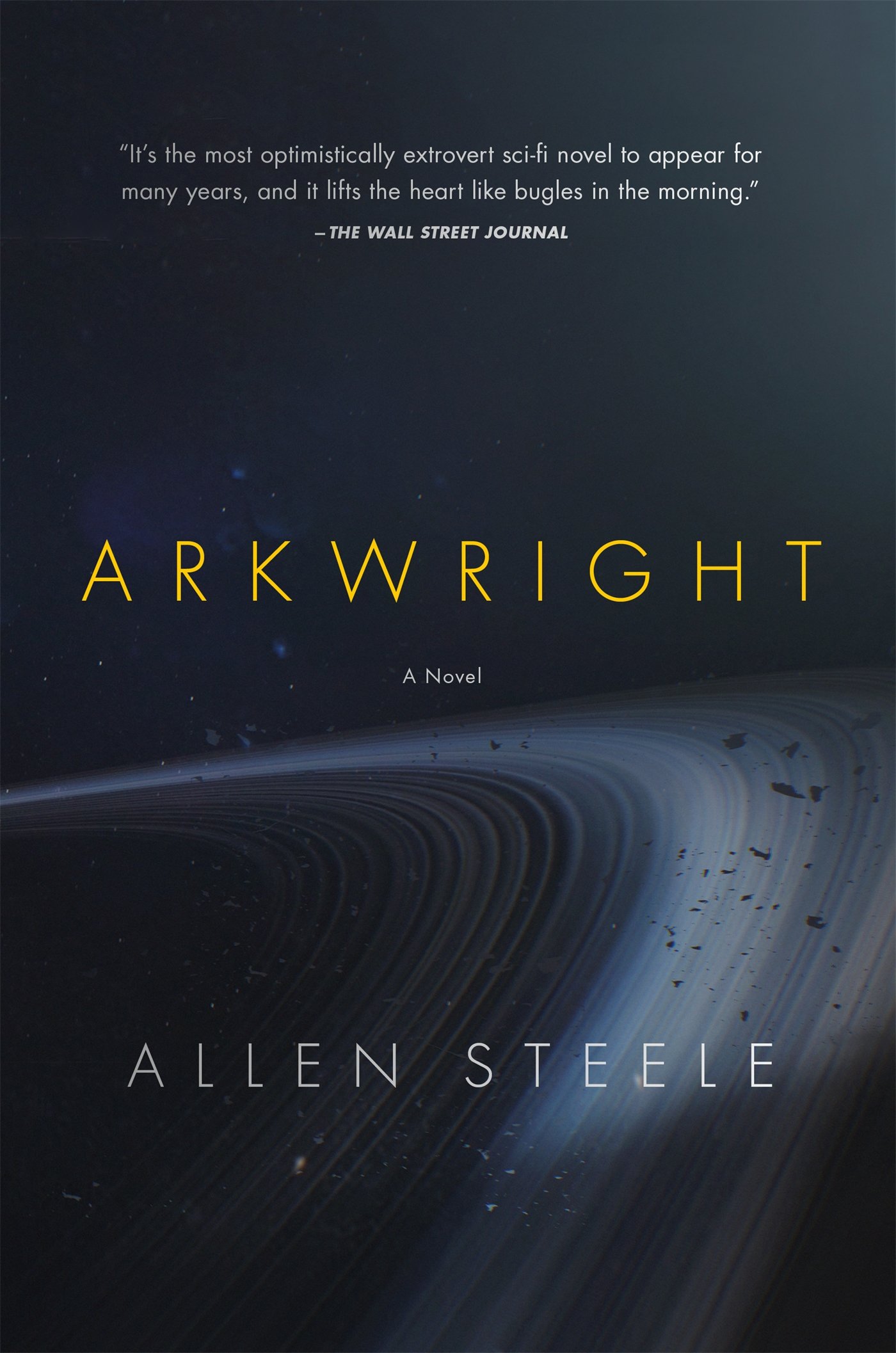
Arkwright
کتاب های مرتبط
- اطلاعات
- نقد و بررسی
- دیدگاه کاربران
نقد و بررسی

February 1, 2016
Golden-age science fiction writer Nathan Arkwright, along with a select group of friends, has a dream of sending humanity into the far reaches of space. His vision plays out across generations in a story that focuses too much on family dynamics and too little on the incredibly cool concepts in the background. When discussing the practical science used to ground the efforts of the Arkwright family, Hugo Award–winning author Steele (V-S Day) shows off his strengths. However, he hamstrings himself by insisting on repeated variations of the girl-meets-boy trope while a colony ship is being built. That leaves important discussions such as “What if something goes wrong?” and “Should we even be doing this?” by the wayside. Similarly, difficulties on the road to progress are dispatched without significant conflict, and all of the opponents to the project are ridiculous buffoons. The final pages offer an intriguing look at space colonization, but there’s not enough room to explore the concept, leaving readers wanting more than this meandering, name-dropping entry provides.

January 15, 2016
In Hugo Award-winning author Steele's (V-S Day, 2014, etc.) latest novel, a popular science-fiction writer aims to colonize space. Nathan Arkwright, a venerated sci-fi icon somewhere between Isaac Asimov and Gene Roddenberry, was the creator of the Galaxy Patrol, a series of space-adventure novels which were developed into a television show and films. Upon his death, his estranged granddaughter, Kate, discovers Arkwright's entire estate will be going to fund something called the Arkwright Foundation. She soon learns the foundation's aim is to launch genetic material--harvested from the descendants of Arkwright and his circle of sci-fi author and editor cronies, among others--into the far reaches of space. When the rocket reaches a habitable planet, the ship's computer will combine the oocytes and sperm into embryos and gestate them in an artificial uterus, thus creating the first human settlement in space, complete with copies of Arkwright's first book, Galaxy Patrol, of course. Steele's book is laid out in a series of novella-length stories and shorter interludes; throughout, characters bearing the Arkwright name shuffle their ways through events of the recent past or the far future, culminating in a groan-worthy and wholly unoriginal ending. The connections from one story to the next are generally too tenuous to be very compelling, leaving the book as a whole feeling like a collection of half-baked ideas that Steele couldn't be bothered to develop into a full-length series. Many of the book's real-world details are either inaccurate (the predominant language of India is not "Indian," for instance) or peddle obnoxious stereotypes: religious protesters are uniformly portrayed as violent fanatics with comically misspelled protest signs, while a white character's first experience on a Caribbean island is getting scammed by an official Steele describes as "a tall black man with a purple-dyed 'fro" committing an act of "third-world graft." Suffice it to say, no one will feel compelled to preserve this book for future generations. A predictable tale that boldly goes where no one should have gone.
COPYRIGHT(2016) Kirkus Reviews, ALL RIGHTS RESERVED.

February 15, 2016
At the funeral of famous sf author Nathan Arkwright, his estranged granddaughter Kate meets three of the novelist's closest friends. They ask her to serve on the board of a foundation that Nathan had established in an effort to get humanity to live among the stars. As the story jumps forward generations, readers follow the efforts of the Arkwright foundation to build and launch the starship Galactique toward a distant planet deemed the best hope for a habitable new world. VERDICT While the plot of Steele's ("Coyote Chronicles" series; Angel of Europa) latest is not new to the genre, the author adds lovely touches of his own, including an homage to sf's golden age and a compelling take on what the human race might look like if it had to adapt to a completely new environment. One important message is the capacity for sf to inspire scientific advancement.--MM
Copyright 2016 Library Journal, LLC Used with permission.

























دیدگاه کاربران